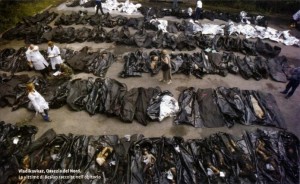Happy Thanksgiving to all from this side of the Pond.
Miscellaneous
Merging Memories – NPR, Fox & the memories they create
Our family has trouble with memories, mine is beginning. I figured Trump had exaggerated (as usual) but I, too, remembered, celebrations (it was all foggy – I couldn’t remember if it was New York or New Jersey – they are all east). Apparently, my memory has failed- probably merging reports of alleged “tailgate parties” with film from Palestine, as some have suggested he did, Carson did. But I do remember listening to NPR in my office, leaving to teach and coming back to hear more of what had happened.
Beslan in Paris
David Brooks’ Beslan column in the New York Times seems appropriate for this Paris Attack:
“Dissertations will be written about the euphemisms the media used to describe these murderers. They were called “separatists” and “hostage-takers.” Three years after Sept. 11, many are still apparently unable to talk about this evil. They still try to rationalize terror. What drives the terrorists to do this? What are they trying to achieve?
.
They’re still victims of the delusion that Paul Berman diagnosed after Sept. 11: “It was the belief that, in the modern world, even the enemies of reason cannot be the enemies of reason. Even the unreasonable must be, in some fashion, reasonable.”
.
This death cult has no reason and is beyond negotiation. This is what makes it so frightening. This is what causes so many to engage in a sort of mental diversion. They don’t want to confront this horror. So they rush off in search of more comprehensible things to hate.”
.

The Reality of Beslan is here again…and it is not going away.
The other state without a budget
The Wall Street Journal has an excellent article (behind paywall) by Andrew Staub on the budget stalemate in Pennsylvania. While the overall fiscal situation is less dire than Illinois (lottery winners are still being paid), the personalities less dramatic and the politics more genteel, the problems both states are confronting are ones the Federal government is ignoring courtesy of the Federal Reserve and central bankers world wide who tolerate the expansion of American debt.
One interesting aspect of the situation Staub passes over is the split in the Republican party. While the Republicans hold a majority in both houses, they are really composed of two factions, liberal leaning Rockefeller Republicans from the eastern side of the state and more conservative members from the west. They are not so far apart that they could be described as RINOs and Tea Partiers, but their inability to consistently act in concert has weakened their numerical majority in the past. However, they recently united to pass a sure to be vetoed paycheck protection bill that had foundered under the previous Republican governor because of resistance from the easterners. This is an indication that, at least in opposition to a Democrat governor the Westerners are starting to prevail.
On the other hand, Governor Wolf sent a tax increase bill to the House, forcing Democrat members to vote on it and the Republicans were happy to accommodate him. 73 Democrats walked the plank for their leader and 9 refused, creating division in the usually solid Democrat ranks. It will be interesting to see the electoral consequences for them.
But there is insufficient power on either side to prevail in the budget impasse. Until the schools start closing, probably after Christmas, there is little pressure on either side to move.
In addition to all this, Kathleen Kane, the Commonwealth’s attorney general has lost her law license as a result of her actions in disclosing sealed information from an investigation into pornographic emails circulating among, allegedly, PA Supreme Court staff and personnel in the AG’s department. She then accused a member of the court of sending and receiving racial, misogynistic pornography. She is under investigation for releasing the materials and the Supreme Court has suspended her license to practice law. The post of AG is frequently a stepping stone to the governorship in PA and the Democrats have lost an attractive potential candidate and leader.
Pennsylvania has been a solid Democrat state in presidential elections. But with the party torn apart, the deceased in Philadelphia may not be able to turn out in sufficient numbers next November to assure the result, if the Republicans can provide an acceptable alternative to HRM. But then PA always finds a way to leave the Republican candidate standing alone at the altar.
